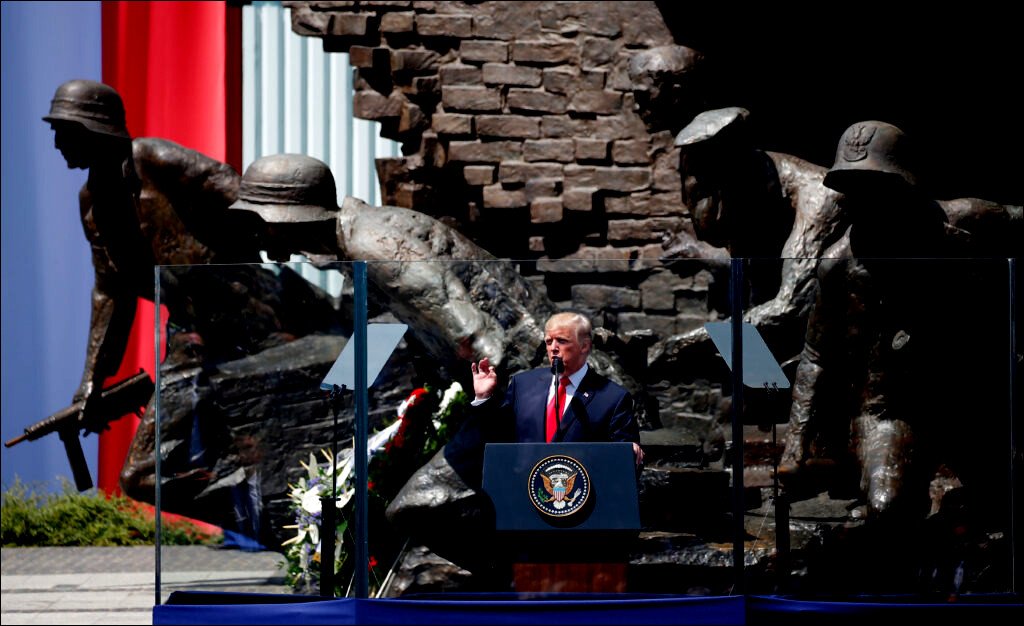Gathered experts from the US, UK, EU, Ukraine, and Russia converged on the University of Michigan on December 2-3, orchestrated by the Weiser Center for Europe and Eurasia and the Atlantic Council, to discuss critical policy recommendations for the upcoming US administration.
Amidst an escalating threat from Russia—propped up by an unholy alliance with China, Iran, and North Korea—strong diplomatic and military resolve is paramount for both the United States and Europe. The repercussions of Russia’s relentless aggression, exemplified by its full-scale invasion of Ukraine, threaten to undermine US interests across Europe, the Middle East, and Asia. President Donald Trump is presented with an unprecedented chance to enlist a more effective pressure strategy against the Kremlin, potentially staving off not only the war’s continuation but also averting the specter of World War III.
To formulate a winning strategy, a future anchored in NATO and European Union membership for Ukraine is essential. Ukraine’s fervent desire to engage in peace talks starkly contrasts the dismissive attitude exhibited by top Russian officials towards such negotiations. The advancement of US interests is heavily contingent upon Ukraine’s preservation of sovereignty and the successful thwarting of Russia’s aggressive pursuits.
Core recommendations for the incoming US administration include:
- Initiating an early ceasefire predicated on existing frontlines could momentarily suspend hostilities, yet it must be tied to robust guarantees for Ukraine’s security, enforced by NATO’s European members under the shelter of US supportive presence.
- Establishment of defense guarantees is paramount for a lasting resolution. Ultimately, Ukraine’s accession to NATO stands as the most viable assurance of its sovereignty, a pact to be brokered exclusively among the US, NATO allies, and Ukraine, disengaged from Russian negotiation fray.
- Crafting a NATO defense for Ukraine must leverage its inherent resources, indomitable fighting spirit, cutting-edge military innovations, and a battle-hardened military force. Notwithstanding its prowess, strategic reinforcements from external allies remain crucial to enhance deterrence capabilities against upcoming threats, with US military aid being indispensable.
- Echoing the historical precedent set by West Germany’s NATO accession in 1955, defense guarantees should pertain solely to territories recognized as under Ukrainian government control. The US ought to steadfastly reject any Russian impositions demanding Ukraine’s enforced neutrality and de facto disarmament.
- Any claims by Russia to Ukrainian lands must remain unrecognized by the US and Europe. All alterations to borders achieved through coercion must be integrally opposed—as mandated by historical doctrines like the Stimson Doctrine (1932), Welles Declaration (1940), and Pompeo Declaration (2018).
- Upon joining NATO, Ukraine should vow to restore its territorial integrity through diplomatic and peaceful methods. In anticipation of its membership, allies ought to pursue deeper integration, including a permanent seat for Ukraine at the North Atlantic Council and representation at the Military Committee.
- Europe must amplify its commitment to bolster Ukraine’s defense capabilities as well as its own. Joint ventures and investment in defense sectors by the US and European allies require significant enhancement.
- A refreshed policy of containment towards Russia is essential. This includes the retention of immobilized Russian sovereign assets, stringent technological restrictions, and cautiousness about sanction modifications. The reliance on Russian energy must conclusively end, with allies prepared to intensify economic sanctions should Russia contravene ceasefire agreements.
- The comprehensive actions proposed can garner pivotal Ukrainian public backing, catalyzing peace across Europe while simultaneously enriching the security and prosperity of the US and its allies. Ultimately, this strategy serves as a formidable deterrent against future aggressors and rekindles American global leadership ambitions.
Insights from the University of Michigan Symposium on the Future of Ukraine provided the foundation for these strategic recommendations, with contributions from an assembly of distinguished experts.
- Minna Ålander, Research Fellow, Finnish Institute of International Affairs
- Stephen E. Biegun, Former US Deputy Secretary of State
- Ian Bond, Deputy Director, Centre for European Reform
- Sławomir Dębski, Professor of Strategy and International Relations, College of Europe, Natolin
- Daniel Fried, Weiser Family Distinguished Fellow, Atlantic Council; Former Assistant Secretary of State for European Affairs
- Alina Frolova, Deputy Chair, Center for Defense Strategies; Former Deputy Minister of Defense of Ukraine
- François Heisbourg, Senior Advisor for Europe, International Institute for Strategic Studies
- John E. Herbst, Senior Director, Eurasia Center, Atlantic Council; Former US Ambassador to Ukraine
- Assia Ivantcheva, Former OSCE Official
- Natalie Jaresko, Former Minister of Finance, Ukraine; Distinguished Fellow, Atlantic Council’s Eurasia Center
- Dmytro Kuleba, Former Minister of Foreign Affairs, Ukraine
- Orysia Lutsevych, Deputy Director, Russia and Eurasia Program, Head of Ukraine Forum, Chatham House
- Vladimir Milov, Research Associate, Wilfried Martins Centre for European Studies; Former Deputy Minister of Energy, Russian Federation
- Hryhoriy Nemyria, First Deputy Chairman, Foreign Affairs Committee, Parliament of Ukraine
- Alina Polyakova, President and CEO, Center for European Policy Analysis
- William B. Taylor, Former US Ambassador to Ukraine
- Geneviève Zubrzycki, Professor of Sociology and Director, Weiser Center for Russia and Eurasia, University of Michigan

